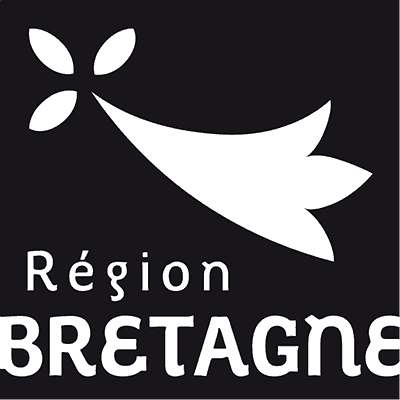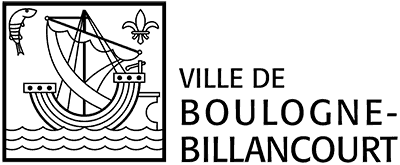[NOMADE DES MERS] Low-tech cultivation of mushrooms
Date of publication : december 16th 2020
Writers : Guénolé Conrad
Place : Mexico
Deep in the remote mountains of Chiapas, Mexico, we met a community that turns local farm waste into oyster mushrooms all year round!
We had already studied mushroom cultivation in Sri Lanka and Thailand: this ecological, simple and efficient method of production has convinced populations all over the world. We discovered that the fungus brings much more than food to these communities …
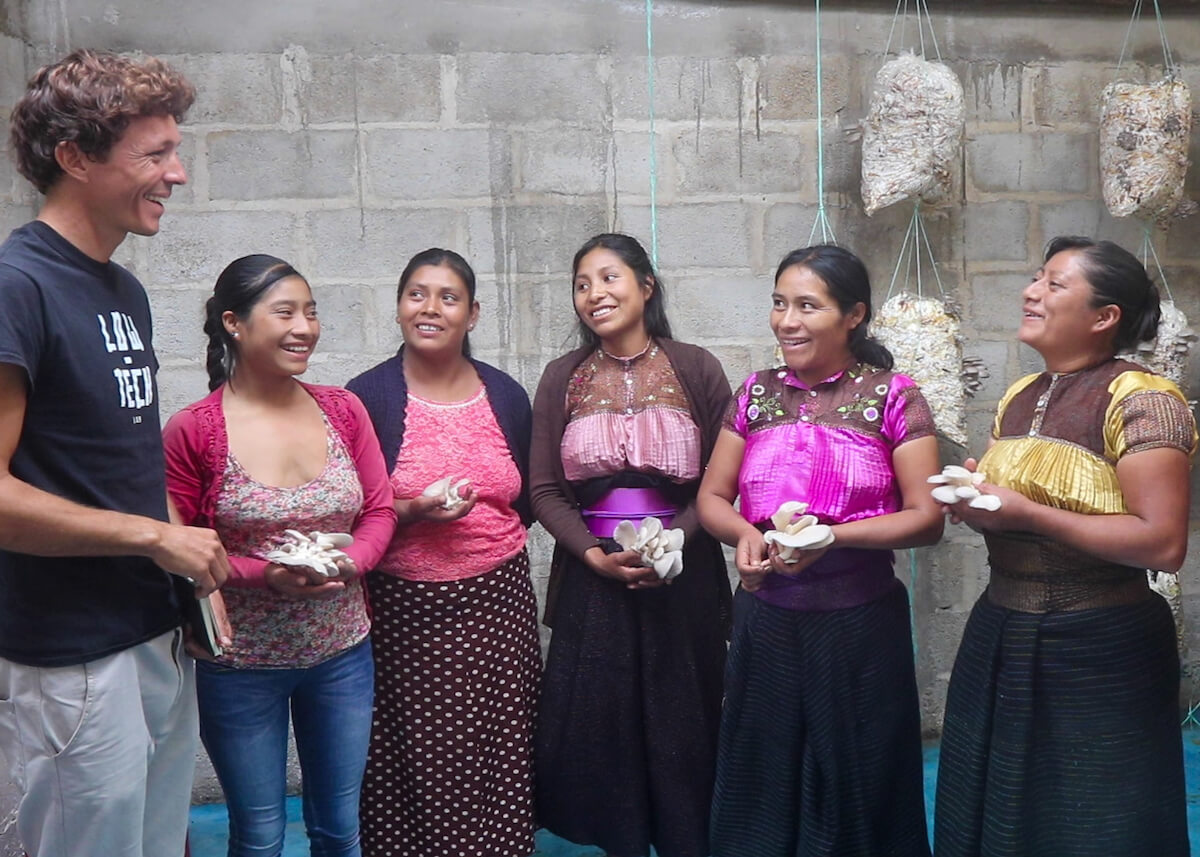
Our discovery of the mushroom community begins with a group of women newly introduced to the cultivation of oyster mushrooms.
In search of food, easy to produce, aboard the Nomade des Mers #
They explain the principle to us. Mycelium (the underground part of the fungus) is placed in bags filled with local farm waste such as a mixture of corn cobs or bean pods.
During several weeks of incubation, the mycelium feeds on the cellulose and grows until it invades all the sacs. Then the impressive fruiting phase can begin: the primordia (first stage of mushrooms, as large as a pinhead) develop with the naked eye at a tremendous speed: in just 3 days, we obtain large clusters delicious oyster mushrooms!
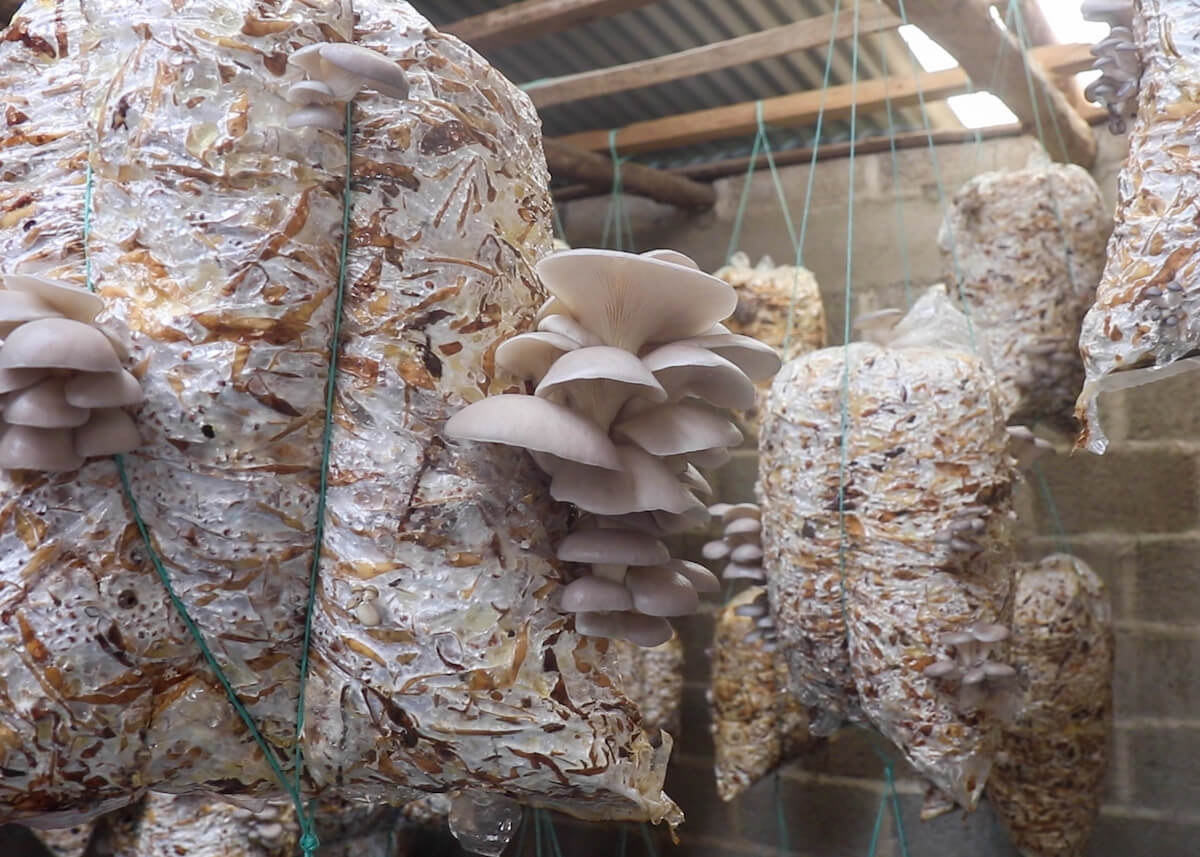
These women were trained for a day by Proasus, an organization that supports the agricultural development of these mountains. #
The organization advises them in the construction of their infrastructure, and provides the mycelium inseminated in the laboratory. Women can then sell their production locally or resell it to wholesalers. Substrate remaining after harvest returns to the soil as compost.
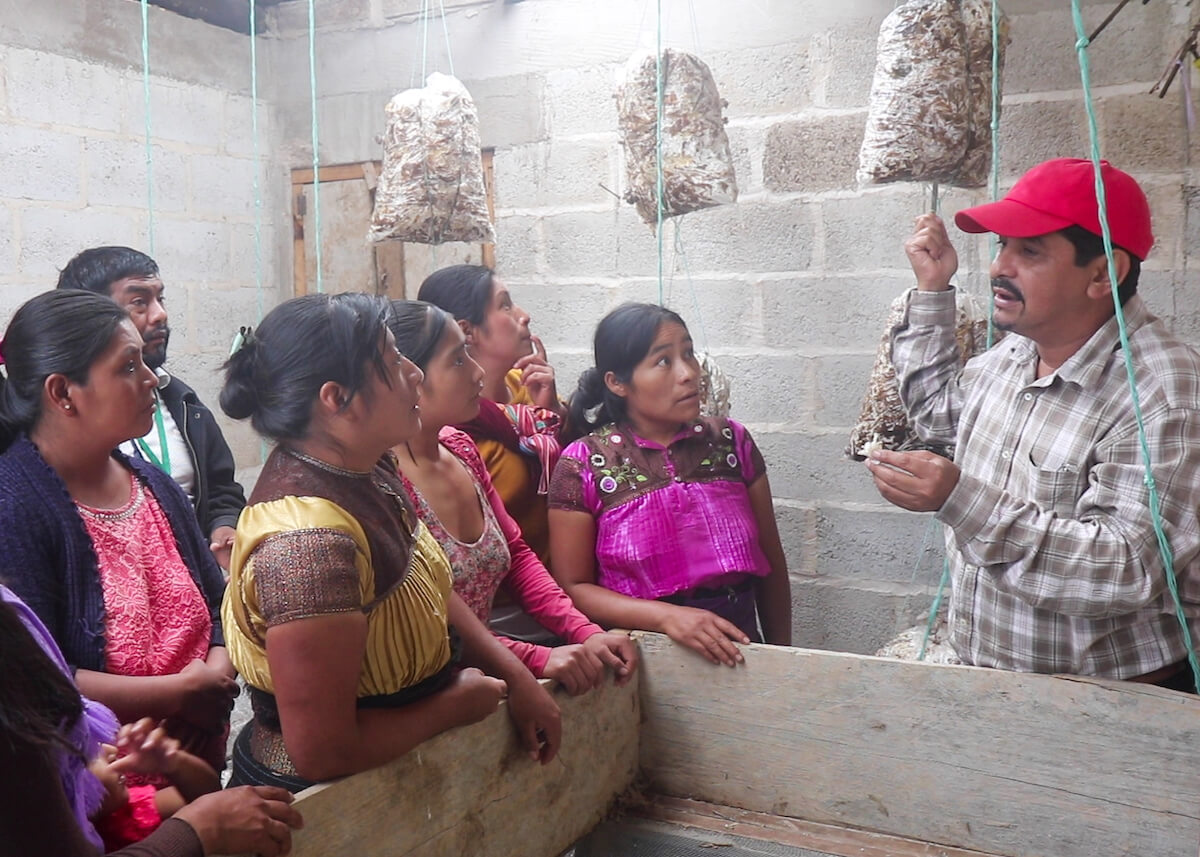
A little further in the village of Atama, we meet Antonio. He tells us how he and the members of his family started the adventure 3 years ago. Starting from nothing, Antonio and his family now produce hundreds of kilos of oyster mushrooms every year in their 2 large greenhouses.
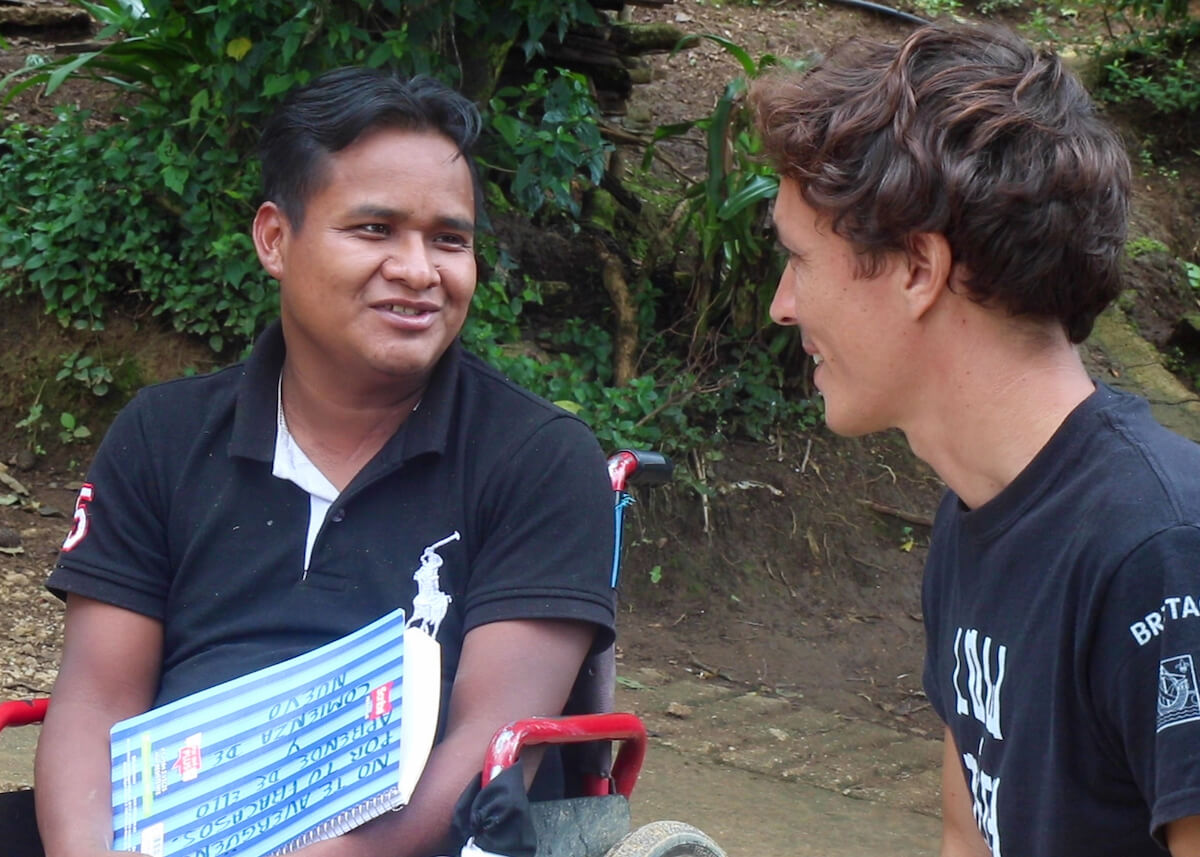
In addition to the simplicity of replication, mushroom cultivation requires very little investment in material and can grow abundantly in a small area, which motivates more and more Mexicans!
In Mexico, rural mushroom production began in 1989 in the state of Puebla, in the northern mountains. #
The technical dissemination model was developed by Martínez-Carrera and Larqué Saavedra, and has proven effective in many peasant, indigenous, rural and even suburban communities across the country. This model takes into account the traditional consumption of edible mushrooms, promotes their cultivation to contribute to food security and generates income through their local sale.
The social, economic and ecological impact on Mexican family farming has been significant due to a growing national demand for mushrooms. The model has proven to be sustainable, and today there are over 6,000 small mushroom growers in central Mexico alone!
Low-tech innovations are often technically interesting but do not always find an economic model to develop them. The cultivation of edible mushrooms is becoming more and more important in the world, in particular for their nutritional properties, but also thanks to a method of transmission which has been proven. We believe this system has a real future!
